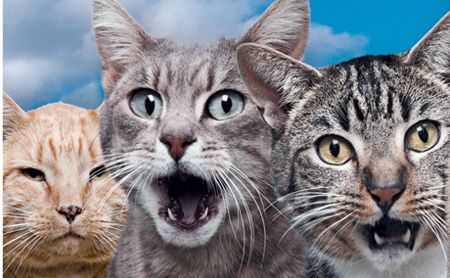Zoonosis alert: Toxoplasmosis risk may reach beyond pregnancy
New research shows that Toxoplasma gondii may be more harmful to the adult human brain than once thought.

Even more danger may be lurking in those litter boxes. (Getty Images)As veterinary team members, you are of course aware of the harm Toxoplasma gondii can cause the human fetus, so you always advise female clients to avoid exposure to feline feces during pregnancy. The results of a new study, however, show that the brain-dwelling protozoan T. gondii may play a more ominous role in human health than once suspected. Researchers looked for-and found-associations between chronic infection with T. gondii in people and some neurologic disorders-including epilepsy and Alzheimer's disease-and some cancers.1 This is no small thing, considering about one-third of all humans have lifelong T. gondii infections, and 15 million people have congenital toxoplasmosis.1
In the new study, a team of 32 researchers from 16 institutions studied how the proteins secreted by T. gondii may alter neural chemistry and even lead to neurodegenerative disease under certain circumstances. Their findings “support the notion that the dormant parasite … in chronic T. gondii infection in the brain of 2 billion persons … has [the] potential to contribute to these disease pathways.”1 The researchers acknowledged that these are complex diseases, involving both genetic and environmental factors. However, they believe their work “provides a systems roadmap to design medicines and vaccines to repair and prevent neuropathologic effects of T. gondii infection of the human brain.”1
In another article summarizing this data-dense study, one of the study co-authors stated, “This study is a paradigm shifter …. We now have to insert infectious disease into the equation of neurodegenerative diseases, epilepsy and neural cancers.”2
Cats, being the definitive host for T. gondii, are the only animals that pass oocysts in their feces that then infect people and other animal species.3 Upon initial infection, a cat can shed millions of oocysts each day for several days.3 All it takes is one oocyst to infect another animal or a person. Given this new study about the potential harmful effects of T. gondii on the human brain, preventing infection in the first place takes on even greater importance. Veterinary care teams should continue advising pregnant clients to avoid exposure to cat feces and should consider expanding educational efforts to ensure all clients are aware of the hazards of T. gondii infection.
References
3. American Veterinary Medical Association. Toxoplasmosis. https://www.avma.org/public/PetCare/Pages/Toxoplasmosis.aspx. Accessed Sept. 25, 2017.